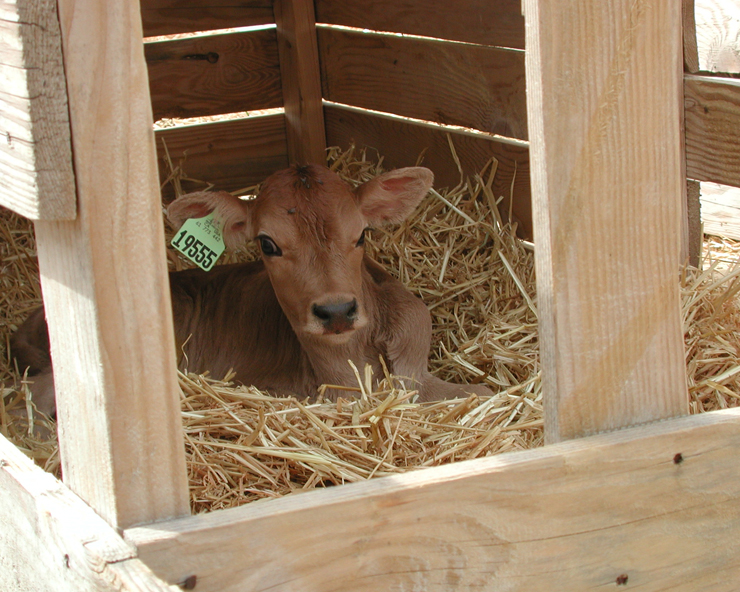Over the past ten years, A2A2 milk has continued gaining popularity with consumers, dairy cattle farms, and producers. A2A2 milk is marketed differently in stores, claiming it is easier to digest and improves health. Some dairy cattle farms select genetics that include the A2A2 gene to develop a completely A2A2 herd. Understanding what the A2 gene is, and how to utilize this information on your farm can help equip farmers to best market and share information about their products.
What is A2 milk?
Beta-casein makes up 30% of milk protein in two forms: A1 and A2. Milk that is A2A2 only contains the A2 beta-casein protein. Some breeds of dairy cattle have a higher percentage of A2 genes, such as Jersey, Guernsey, and Brown Swiss.
Using A2 genetics
Like selecting any specific trait, breeding for a completely A2A2 herd can take many generations, using a strict selection of bulls with the A2A2 gene. Genomic testing is one way to determine how much of your herd is A1A1, A1A2, or A2A2. This can help you decide what bulls to breed your cattle if you want to transition.
Genomic testing your herd can bring benefits, even if you are not interested in breeding for A2A2 genetics, by giving information about milk production, productive life, and other production and health traits.
As A2 milk has gained popularity, many artificial insemination (AI) companies have increased the marketing behind A2A2 bulls. With an expanded selection and knowledge about A2, there are many A2A2 bulls to choose from across the dairy breeds.
Consideration of use
Depending on your area and demand, utilizing A2 genetics could bring a premium for your milk. However, without a substantial market for A2 milk, it may be more profitable to select bulls based on production and health traits. Each farm’s use of A2 genetics will look different, but marketing A2 milk directly to consumers can bring added benefits.
Without clear and extensive research on the benefits of A2 milk for human digestibility and health, there is an opportunity to increase research on the human benefits of consuming A2 milk. A2 milk represents a growing niche in the dairy industry, driven by consumer demand for products perceived as healthier and more accessible to digest, especially for those who believe they are lactose intolerant. Farmers can transition their herd to produce A2A2 milk through genomic testing and selective breeding, potentially capturing premium prices in specific markets. Ultimately, each farm must weigh the benefits and opportunities to determine the best strategy for incorporating A2 genetics into their breeding program.
Resources
UMN Extension: A2 milk and A2 genetics

